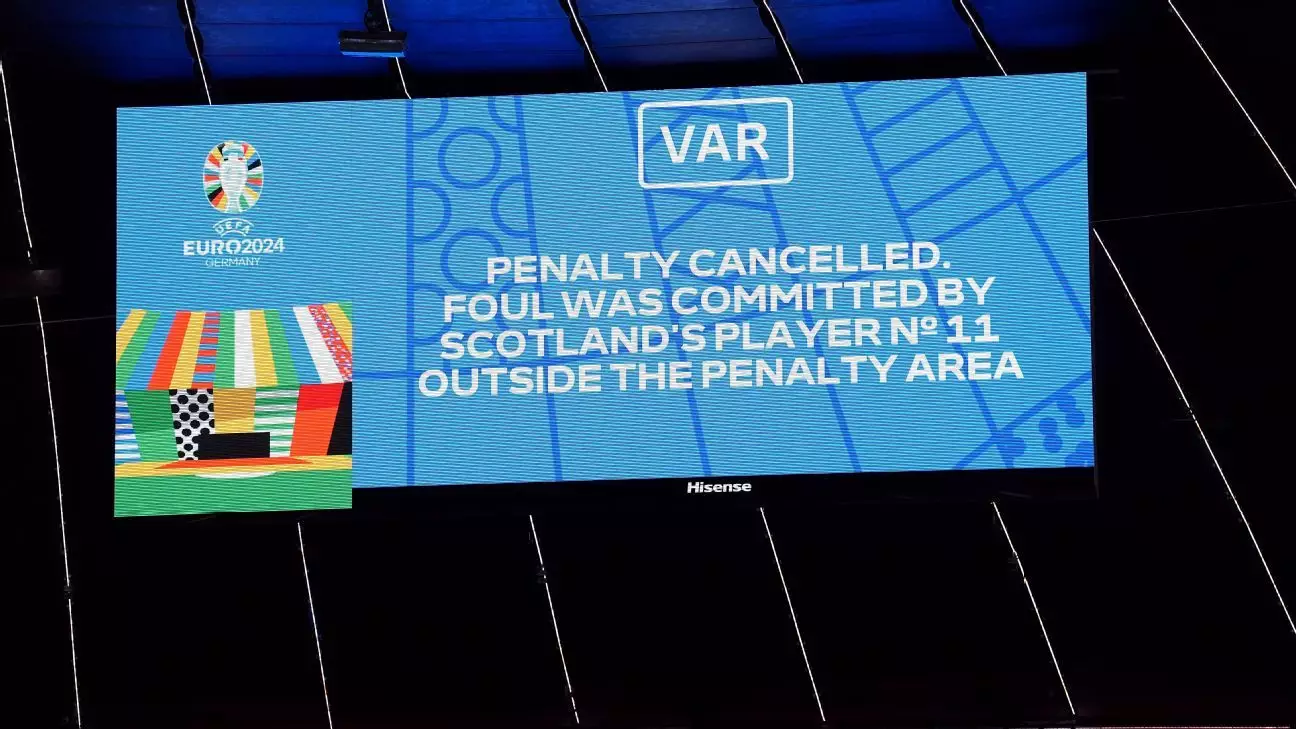In recent developments within the world of football, the International Football Association Board (IFAB) has taken a significant step by approving expanded trials for the Football Video Support (FVS) system. This initiative is particularly intriguing as it seeks to offer an alternative to the contentious Video Assistant Referee (VAR) system by empowering coaches with the ability to challenge referees’ decisions on the pitch. The decision was made public after successful trials during the U20 and U17 FIFA Women’s World Cups earlier this year, where the practicality of FVS was first tested.
The motivation behind creating FVS stems from a need for a more adaptable officiating system that could operate effectively even within leagues that may not have the financial resources to deploy a full-fledged VAR setup. The proposal, highlighted by Pierluigi Collina, who leads FIFA’s referees’ committee, suggests that the upcoming trials will broaden the scope for various competitions, especially those without access to high-end technological resources. Given this context, FVS promises to democratize the officiating process, giving it a more grassroots flavor.
One of the most notable aspects of the FVS system is the empowerment it brings to the coaches on the sidelines. Instead of relying solely on a remote video assistant referee, coaches will be able to call for up to two challenges during a match should they believe a decision made on the field was incorrect. This means that the dynamics of how decisions are made can shift from a top-down approach, where referees are merely influenced by video replays, to a more collaborative environment where coaches actively participate in the discourse surrounding officiating.
However, it is crucial to acknowledge the limitations of FVS as outlined by Collina. With a constrained setup—best suited for stadiums equipped with only four cameras—the system is not intended to replicate the comprehensive oversight provided by VAR. Consequently, FVS is distinctively designed for scenarios where clear errors can be observed, leaving more ambiguous situations at the discretion of the on-field referee. This shift in responsibility will likely necessitate a more seasoned and confident officiating body, as referees will need to manage the risks associated with their decisions more acutely.
The initial implementation of FVS is intended for leagues that are either new to televised matches or those that face challenges in effectively using VAR due to variable stadium sizes and resources. A prime candidate for this trial could be the Women’s Super League, which has been grappling with the inconsistencies of VAR implementation amid diverse venues.
Moreover, the governing body has indicated a willingness to listen to feedback from various FIFA member associations to gauge their interest in participating in the trial. Yet, the challenge remains in managing expectations; FVS cannot deliver the same level of scrutiny and insight as a traditional VAR system equipped with numerous camera angles and specialized match officials.
In a related vein, the IFAB has continued to explore other officiating tweaks, including addressing the often problematic issue of goalkeepers holding the ball excessively. Trials assessing new communication protocols between players and referees are also being evaluated, signaling a broader effort to refine the game’s regulations and improve clarity on the pitch.
The annual meeting of the IFAB scheduled for March 1 will be critical in determining the future trajectory of FVS and other officiating innovations. With potential amendments to the Laws of the Game on the table, the footballing community may witness a future where technology plays a more integrated role not just in reviewing decisions, but also in enhancing the overall quality and flow of the game.
As football continues on its journey of evolution, one can only hope that systems such as FVS can help bridge the gap between traditional officiating and modern technological advancements, ultimately striving for a more just playing environment that retains the spirit and unpredictability that makes football beloved worldwide. The adaptation and feedback from these trials will be pivotal as they shape the future of football officiating.

